9/11 Conspiracy Theories: Inside The Lonely Lives Of Truthers, Still Looking For Their Big Break
Fourteen years after 9/11, Truthers, as they’ve been pejoratively labeled since 2001, have not gone away. And odds are, you probably know one.
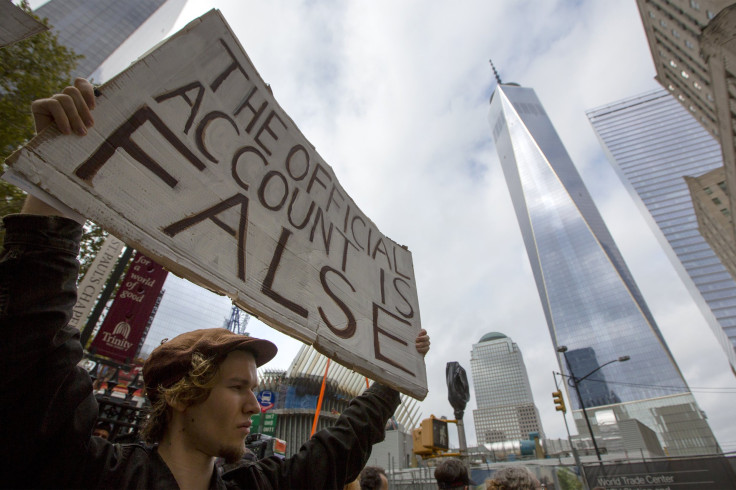
I didn’t know my local bartender was a 9/11 Truther. Boyishly handsome with dirty blond hair and wearing his T-shirt inside out, he appeared to be eavesdropping on me at a Brooklyn tavern last week as I told a friend that I was working on a piece about “Truthers” -- Americans who believe the attacks of Sept. 11, 2001, in New York, Washington, D.C., and Pennsylvania were staged or executed not by terrorists but by the American government.
“Inside job,” the bartender piped up, without making eye contact. I asked him if he was just making fun or if he was truly a believer himself.
“Yeah, man, I’m a believer," he said, pouring me a drink.
“Yeah, man, I’m a believer."
Fourteen years after 9/11, Truthers, as they’ve been pejoratively labeled since 2001, have not gone away. Their conspiracy theories can be traced back to the first months after the attack, multiplying over the Internet through message boards, articles and, eventually, homemade documentaries such as the low-budget cult hit “Loose Change,” which racked up 10 million views and topped Google Video in 2006, an outstanding feat in the pre-YouTube era. Organizations like 911truth.org and Architects & Engineers for 9/11 Truth cropped up, bringing together like-minded skeptics of the official narrative that 19 Islamic extremists hijacked four commercial airplanes and carried out the most devastating terrorist attack in U.S. history.
There are even conferences dedicated to discussing a broader strategy to push the movement’s narrative into the mainstream.
Not that Trutherism has been confined to the bowels of the Internet: Celebrities from Mark Ruffalo to Rosie O’Donnell to America’s own TV president, Martin Sheen demand answers about “what really happened.” Activists staged multiple “Bush Did It” rallies in 2002. Last year, Architects & Engineers for 9/11 Truth coordinated with the “Rethink 9/11” campaign to score a huge billboard in Times Square questioning the physics of WTC 7’s collapse. Just this week, staffers from the New York Times complained that the building across from them had been draped in Truther propaganda.
And year after year, polls find that a percentage of Americans across the country suspect that the U.S. government has covered up its own role in the attacks.
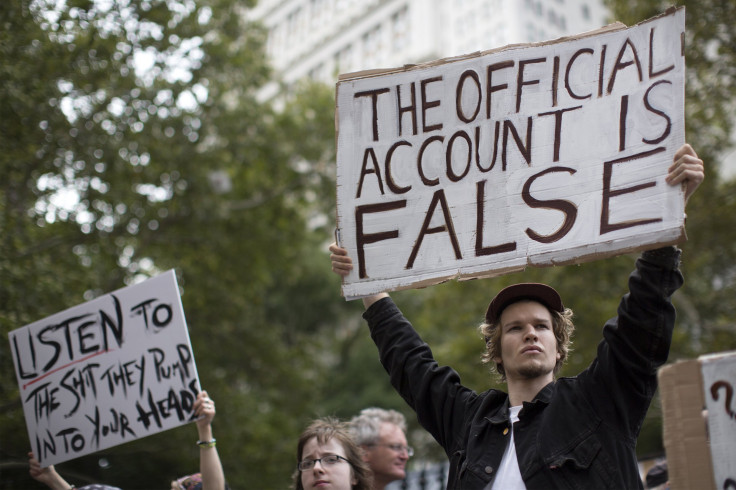
In 2004, half of New York City residents and 41 percent of New York state citizens polled by Zogby said that some in the government "knew in advance that attacks were planned” and purposefully let them happen. In 2006, Zogby found that 42 percent of Americans nationally believed the U.S. “concealed or refused to investigate critical evidence that contradicts their official explanation of the September 11th attacks,” and that “there has been a cover-up.” In 2013, Public Policy Polling reported a much lower figure of 11 percent -- still more than people who said they believed in other theories such as chemtrails, or that the Apollo 11 moon landing was faked.
Even taking the lower estimate, that still suggests there are millions of people in the U.S. who believe the official story of 9/11 is a false flag, and that the real truth has been covered up. That’s not a fringe group. It’s possible that you know a friend who’s a Truther. Or a dentist. Or a bartender. Maybe they just haven’t told you.
‘It’s Really Lonely’
My surprise-Truther bartender’s name was Bryan Ujueta. For the better part of an hour, with lounge music piping at the bar and glasses clinking around us, we had an impromptu interview discussing why he thought George W. Bush did 9/11.
Ujueta was raised in New York, originally in a suburb on Long Island. He grew up working in a bunch of delis and living the life of what he called the “Italian-American middle class.” He’s 30 years old and has been tending bar for about 10 years, but his real passion is music.
“I’ve traveled the world to play music,” he said between concocting drinks. “I’m a percussionist, I play piano and drums.” He was being modest: His band, Mr Twin Sister (originally just Twin Sister), is well known on the indie music scene. They’re a staff favorite at Pitchfork, making the site’s top 100 tracks of the year in 2010. Two years later, their song “Meet the Frownies” was sampled by rapper Kendrick Lamar.
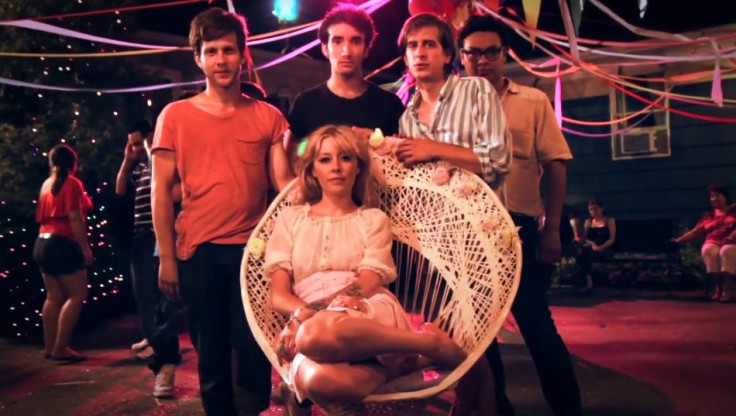
Long before that, though, Ujueta was a high school freshman trying to make sense of the attack on the World Trade Center, where he lost someone he knew.
“I ate dinner at Windows on the World, which was the sushi restaurant at the top of the World Trade Center [in the north tower] one month before it went down,” he said. “I went there for my cousin’s birthday. My dad used to go there; his best friend was a sushi chef. He made what we thought was the best sushi in New York.”
“He died that day,” Ujueta said.
Like many others, he eventually came across the literature of “9/11 Truth” online.
“The first time I heard that ‘jet fuel cannot melt steel beams,’ which has become a joke almost, I began to dive into it,” he said, referencing the evolution of that phrase into an Internet gag in recent years. “And then, from jet fuel, it went to thermite, which shouldn’t be found where explosions like that happened, but it was [on 9/11]. And you basically fall down the rabbit hole.”
Political scientist Michael Barkun, an expert on conspiracy theories, has explained their appeal as both endlessly fascinating and strangely comforting.
“[C]onspiracy theories claim to explain what others can't,” he said in an interview with New Internationalist 11 years ago. “They appear to make sense out of a world that is otherwise confusing. Second, they do so in an appealingly simple way, by dividing the world sharply between the forces of light and the forces of darkness. They trace all evil back to a single source, the conspirators and their agents.”
Ujueta describes himself as a progressive (he plans on voting for Bernie Sanders in 2016), a political orientation he inherited from his father. But his dad won’t have any talk of jet fuel and steel beams. “He is not down with 9/11 Truth,” Ujueta said. “My dad is very smart, he was a botanist, he’s a skeptic. My dad is a very educated man. He is almost militantly progressive.” His mother, meanwhile, isn’t very political and doesn’t like to argue about the attacks.
He sighed and said no one in his family shared his understanding of 9/11, nor did any of his friends. “I basically can’t talk about it.”
I asked what it’s like for him to be the only person he knows who thinks this way. He paused for a long time and began to tear up.
“I would say it’s really lonely.”
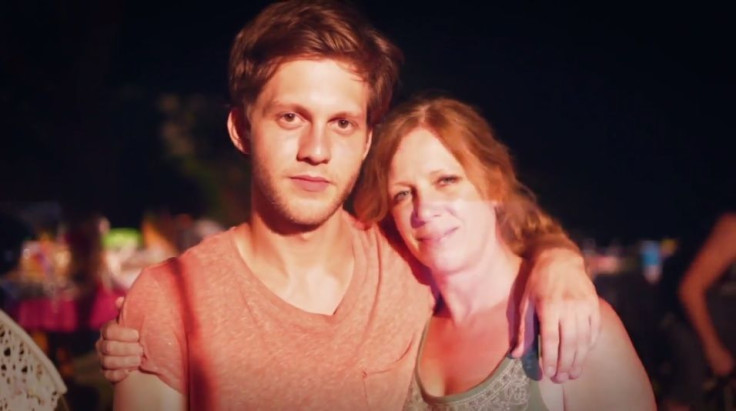
Trump 2016 Writes ‘Historic’ Letter To Truthers
Richard Gage is an architect of 25 years and a member of the American Institute of Architects. He takes dance classes and martial arts classes each week. Driving around his neighborhood in the San Francisco Bay Area, he listens to KPFA’s “Guns and Butter” radio show. He also is the founder and CEO of Architects & Engineers for 9/11 Truth.
Unlike Ujueta, Gage didn’t know anyone who died in the attacks. But he was bitten by the Truth bug nonetheless, around 2006. Soon he wondered why other architects weren’t organizing around what he called the obvious evidence that the attack was a controlled demolition.
“It just began to turn my world upside down,” he told me over the phone. “I felt like I was in the Twilight Zone.”
Not long after he saw the light, Gage huddled with a handful of architects at the firm where he worked until they too converted and signed what would become his group’s petition demanding a new investigation of the attacks. Today, he said, more than 2,300 architects have signed on. He has left his practice behind in favor of leading his Truther group, boasting of 400 presentations around the world, in 37 countries and 85 American cities.
Gage came from a very different part of the political spectrum from Ujueta, one example of the ideological diversity of the movement.
“At the time [of 9/11] I was a Reagan Republican, if you will,” he said. “Very conservative. I was actually rooting for Colin Powell as he was making his indisputable case for weapons of mass destruction and that we needed to go into Iraq and get those bastards.” These days he simply identifies as a libertarian, disgusted with the political system and both major political parties.
“We’ve given our DVD to every congressman, Democrat, Republican, and not one of them has seen fit to take any effective action whatsoever of the worst crime of the century,” he complained.
But one politician recently made an impression: Donald Trump.
According to Gage, Trump is the only presidential candidate or major public figure who has written the Truther group a custom letter after being sent their DVDs and literature. Trump's campaign, Gage said, thanked the members of Architects & Engineers for 9/11 Truth for their “continued support.”
“Thank you for your book and DVDs,” read the email, which Gage forwarded to me. “Our advisors will investigate the claims made by the architects and engineers more thoroughly and draw their own conclusions from there. We appreciate your continued support. Sincerely, The Trump Campaign.”
Gage and his group were starstruck. “Someone actually acknowledged we took the time to send them something and said they would look at it,” Gage said. “That’s historic at this level of politics, a presidential candidate.”
Trump’s campaign did not respond to a request for comment.
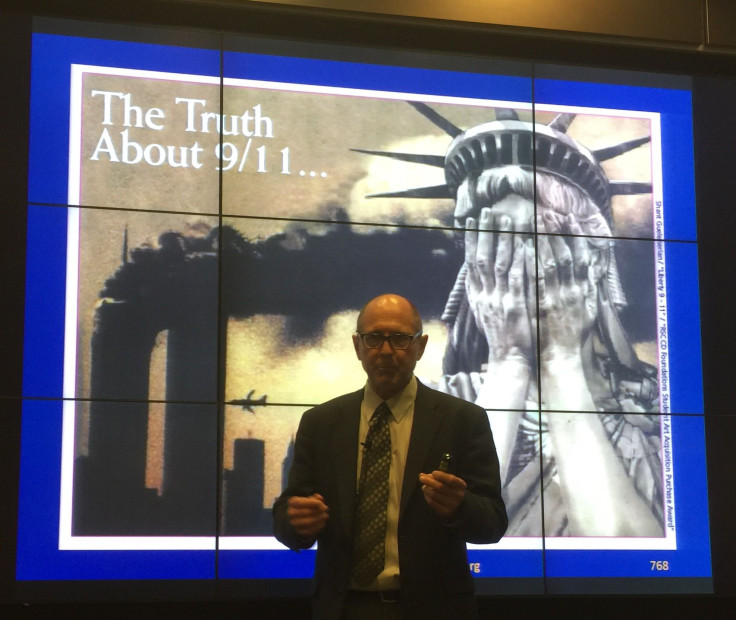
Apart from his travels and speaking engagements, Gage’s crusade has changed his life profoundly: His wife left him several years ago. “I was married when I learned about the truth about 9/11,” he said. “It’s very unsettling to most people. My wife was one of those people. While she agreed with the evidence that I was providing, she had a hard time living with it continuously.”
“It was certainly one of the most difficult personal tolls on my life, having that be the primary cause of our divorce,” he added. “So everyone around knows as well that I am completely dedicated over the last nine years now to this subject.”
“If I form relationships,” he said, “those relationships are second place to my mission.”
‘This Is How My Son Died’
Bob Mcllvaine lost his son, Bobby, in the north tower of the World Trade Center. He lives in a suburb of Philadelphia. He used to teach history at a private school in Haverford, Pennsylvania, outside Philadelphia, educating children with dyslexia. That’s where he met his wife, a reading specialist.
“I don’t get depressed -- although maybe I’m always depressed,” Mcllvaine quipped over the phone. He doesn’t vote anymore. “I have made a journey politically -- I would never think of voting. I would move from this country in a moment’s notice if I could.”
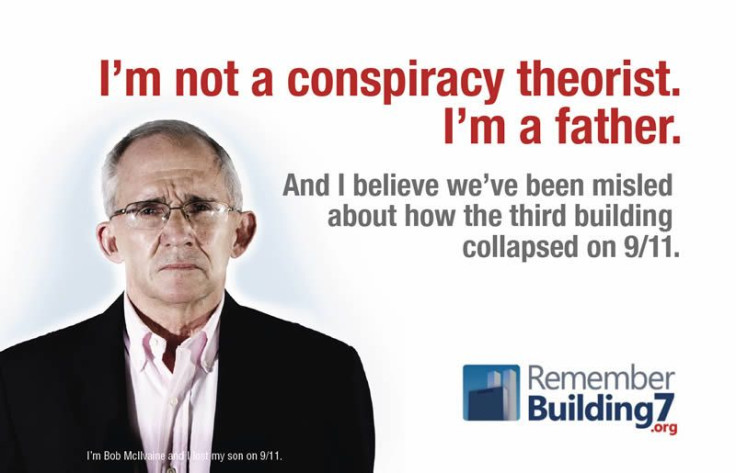
Identifying with the left, Mcllvaine doesn’t share Richard Gage’s enthusiasm for Trump (“an idiot”), but doesn’t have any faith in Ujueta’s man, Sanders, either.
Bobby was 26 when he died. He graduated from Princeton in 1997, majoring in English with a minor in African literature. He set out for New York City right after school, where Merrill Lynch offered him a job as VP of media relations and offered to pay for his graduate studies. Bobby was thinking either Harvard or Penn. He started at Merrill a couple weeks before 9/11, a rising star.
“He was just a phenomenal writer,” Mcllvaine said. "He was working on a book."
Merrill Lynch’s office was across the street from the towers, but there was a seminar happening on the 106th floor of the north tower on 9/11, which Bobby was supposed to attend. His father doesn’t believe he ever made it to that part of the building. The fact that Bobby was one of the few bodies recovered within the first few days of the attack, along with the nature of his injuries, suggested he was near the ground floor when the north tower was hit.
To Mcllvaine, the nature of his injuries suggest a lot more. “Bobby didn’t get hit by a fireball,” he said, referencing the fire from the fallout of the plane’s collision with the tower. “That’s what I know. Bobby must have been hit by a bomb.”
He didn’t come to this conclusion right away. But after 9/11, Mcllvaine became very involved in the anti-war movement.
“I just couldn’t understand why we were going to war for a criminal act like this,” he said. “I went everywhere, I spoke a lot, at campuses, at conferences. Spoke about the blowback of our foreign policy. Bobby was a progressive, loved to talk politics and social issues.”
Mcllvaine spoke and traveled up until 2005, in Indonesia, South Africa, Ireland, Israel and the Palestinian territories, attending conferences on violence. He joined a group called 9/11 Families for Peaceful Tomorrows, and ended up traveling to Japan where he prayed with Buddhists. Eventually, he helped lead a march of 250,000 anti-war protesters in New York.
“I didn’t want to be a victim," he said. "I wanted to have change."
The turning point came when he attended the 9/11 Commission hearings.
“I felt then that this whole thing has been a big lie,” he said. “People just don’t want to talk about it. That, to me, simplifies my life. I don’t have to bicker or complain with other 9/11 family members -- I just say, this is how my son died.”
His status as the father of a victim hasn’t protected him from critics of the Truther camp. Rush Limbaugh once came after him. He also appeared on Bill O’Reilly’s show on Fox News, noting he was careful to do it via satellite in case O’Reilly tried to beat him up. But he also says that after one Fox News segment a few years ago, presidential candidate Mike Huckabee and Fox host Geraldo Rivera both told him footage of WTC 7 looked like a controlled demolition to them.
Mcllvaine also said he gets anonymous calls from the CIA or FBI encouraging him and saying they agree it was an inside job.
“If you really decided to look into this, there’s no doubt in my mind you would become a so-called 9/11 Truther.”
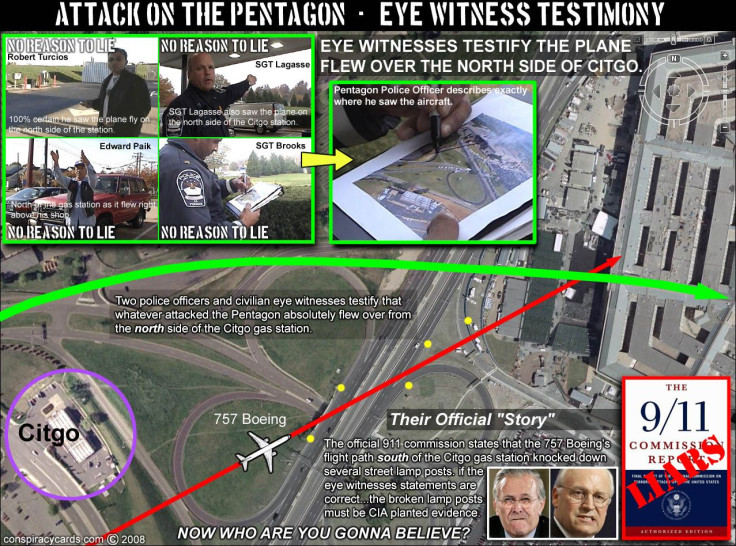
‘It's Like I’m A Leper’
The common thread between these three believers, and others I spoke with, is the sense of isolation from regular social scenes and the reinforcement from the tightly knit 9/11 Truth community.
“It’s brutal. I will never volunteer to talk about it,” Mcllvaine said. “In my circles, people ignore it. It’s like I’m a leper. I don’t see many people anymore.” He says his wife supports him, but doesn’t want to talk about how Bobby died. She says it doesn’t matter, even if his theories are true, because it won’t bring her son back. “If she started talking about that she wouldn’t have any friends.”
When asked if most of his friends come from the movement these days, Mcllvaine said it was indeed a saving grace. “I know so many people through 9/11 Truth.” Richard Gage, too, said about half of his friends are 9/11 Truth activists. His colleague and fellow Truther, Steven Dusterwald, said his “regular” friends simply do not want to hear about it. “We’re out to bowl,” they say. “We don’t wanna hear your crazy theories.”
But within the movement, they have a safe space. Carrying around the belief that your own government took the lives of 3,000 fellow citizens a few years back is a fair bit heavier than believing the moon landing was a Hollywood production. Some, like Bryan Ujueta the bartender, rely on the wealth of literature online, proof that it’s not just his own wild theory. Others more directly involved, like Gage, Dusterwald or Mcllvaine, belong to a community that understands and accepts them.
What’s more, they all believe that community, thanks to the disaffected millennial generation, is only getting bigger. “I think it will take about another 20 years,” Ujueta said. “In about 20 years people will start to piece things together.” Gage is optimistic his group is on the cusp of finally getting some respect.
“I keep wondering, hoping, that this is the year that we get the breakthrough,” he said.
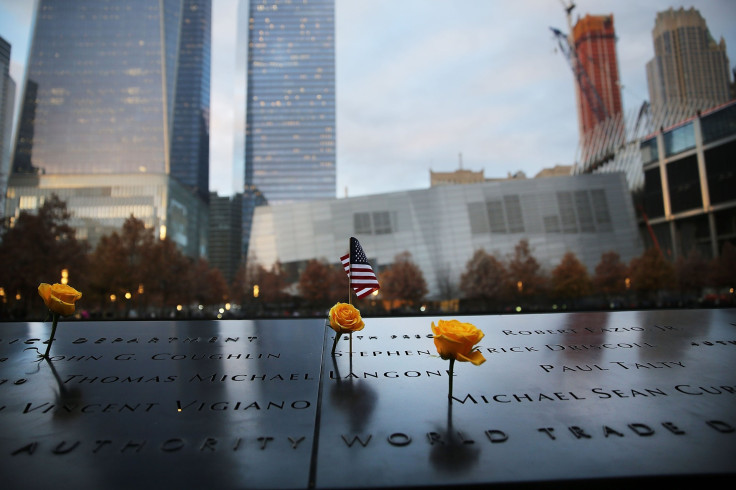
Polling does show that millennials are far less trusting of the government than their parents. A 2014 survey by Harvard found that young people’s “cynicism toward the political process” has never been higher. “There’s an erosion of trust in the individuals and institutions that make government work — and now we see the lowest level of interest in any election we’ve measured since 2000,” polling director John Della Volpe said at the time. This year, a second poll from Harvard showed more of the same, with 83 percent of millennials showing “no faith” in Congress.
“This is a more cynical generation when it comes to political institutions,” Volpe repeated this time around.
It’s unclear whether disillusionment with politics will send Trutherism into the mainstream: as Ujueta himself noted, and Gage admitted, the theory remains a widespread joke on and off the Internet these days among the younger generation. While some millennials may view the movement as relevant as it was in 2001, many view it as a punch line. That alone is yet another bad break for the ostracized community.
Near the end of our conversation, even Gage confessed he misses his life before 9/11 Truth.
“It is tiring after nine years, I have to say,” he said. “I am an architect, I’d rather be practicing architecture. I’ve been full time as a 9/11 Truth activist for five years and I’m looking forward to going back to architecture. I make more money, I have more fun.”
He paused.
“But my country’s at stake.”
CORRECTION 4:21 p.m. EDT: An earlier version of this article reported that Ujueta's brother and cousin died while serving in the Army in the Iraq War. Ujueta later contacted IBT and retracted his claim.
© Copyright IBTimes 2024. All rights reserved.






















